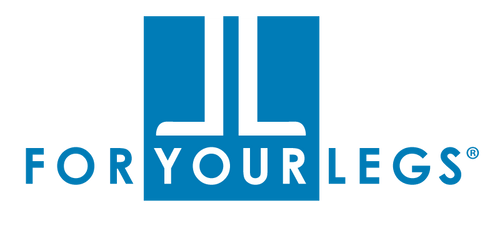Compression Level Guide
8-15 mmHg
Mild Compression

This is the lightest form of compression, which is great for energizing your legs. This compression level provides relief from tired and achy legs and helps control minor swelling.
8-15 mmHg Mild Compression is recommended for:
- Tired, Achy Legs
- Mild Fatigue
- Occupations with long periods of sitting or standing
15-20 mmHg
Moderate Graduated Compression

The moderate compression provides relief from minor to moderate swelling, aching, and varicose veins. They are great for preventing deep vein thrombosis (or economy class syndrome) while traveling, but they’re also good for anyone who stands or sits for long periods of time.
15-20 mmHg Moderate Compression is recommended for:
- Discomfort from spider veins
- Relief from minor leg swelling
- Relief of tired aching legs
- Relief of leg discomfort during pregnancy
- Minor varicose veins
- For wear following sclerotherapy
Note: These are examples of reasons to wear this level of compression. Please consult with your physician for compressions above 15-20 mmHg.
Shop Now18 mmHg
Anti-embolism

For prevention of embolism.
Shop Now20-30 mmHg
Firm Graduated Compression

The most frequently prescribed level provides firm compression and can be used to treat a variety of mild to moderate conditions. This level can provide relief from varicose veins, edema, deep vein thrombosis, and post-sclerotherapy.
20-30 mmHg Firm Compression is recommended for:
- Heaviness and fatigue in the legs
- Low-grade varicosities without special disposition for edema
- Varicosities during pregnancy
- Small varicose dilations of cutaneous veins
- Post-sclerotherapy
30-40 mmHg
Extra Firm Graduated Compression

Often prescribed to provide relief from moderate to severe edema, varicose veins, and deep vein thrombosis. They’re also prescribed for post-sclerotherapy and to heal active venous stasis ulcers. This level of compression should only be worn under a doctor’s supervision.
30-40 mmHg Extra Firm compression is recommended for:
- Relief of aching, heaviness and fatigue caused by varices
- Post-surgery or sclerotherapy
- Prophylaxis of thrombosis
- Prophylaxis and treatment of complications of varicose veins and post phlebitic syndrome with chronic venous insufficiency
- Venous ulcers
- Varices during pregnancy
- Pregnant patients with previous phlebitis
- Management of edema and effective scar formation after burns
- Stasis dermatitis due to chronic venous insufficiency
- Lymphedema
40-50 mmHg
Strong Graduated Compression

For lymphedema, severe chronic venous insufficiency, post phlebitis syndrome, chronic venous problems after surgery, and venous ulcers.
40-50 mmHg Strong Compression is recommended for:
- For severe degrees of the above listed conditions
- Emphasized edema from above causes
- Lymphedema
- Severe chronic venous insufficiency as with post-phlebitic syndrome
- Chronic venous problems after surgery
- Venous ulcers
50-60 mmHg
Extra Strong Graduated Compression

For severe post thrombotic syndrome and primary lymphedema after decongestant therapy for reduction maintenance.
50-60 mmHg Extra Strong Compression is recommended for:
- Primary lymphedema after decongestant therapy for reduction maintenance
- Severe Post Thrombotic Syndrome
The above recommendations were provided by the manufacturers of these products and should not be used in lieu of a physician's recommendation. Please consult with a physician or healthcare professional before choosing your compression.
Shop Now
